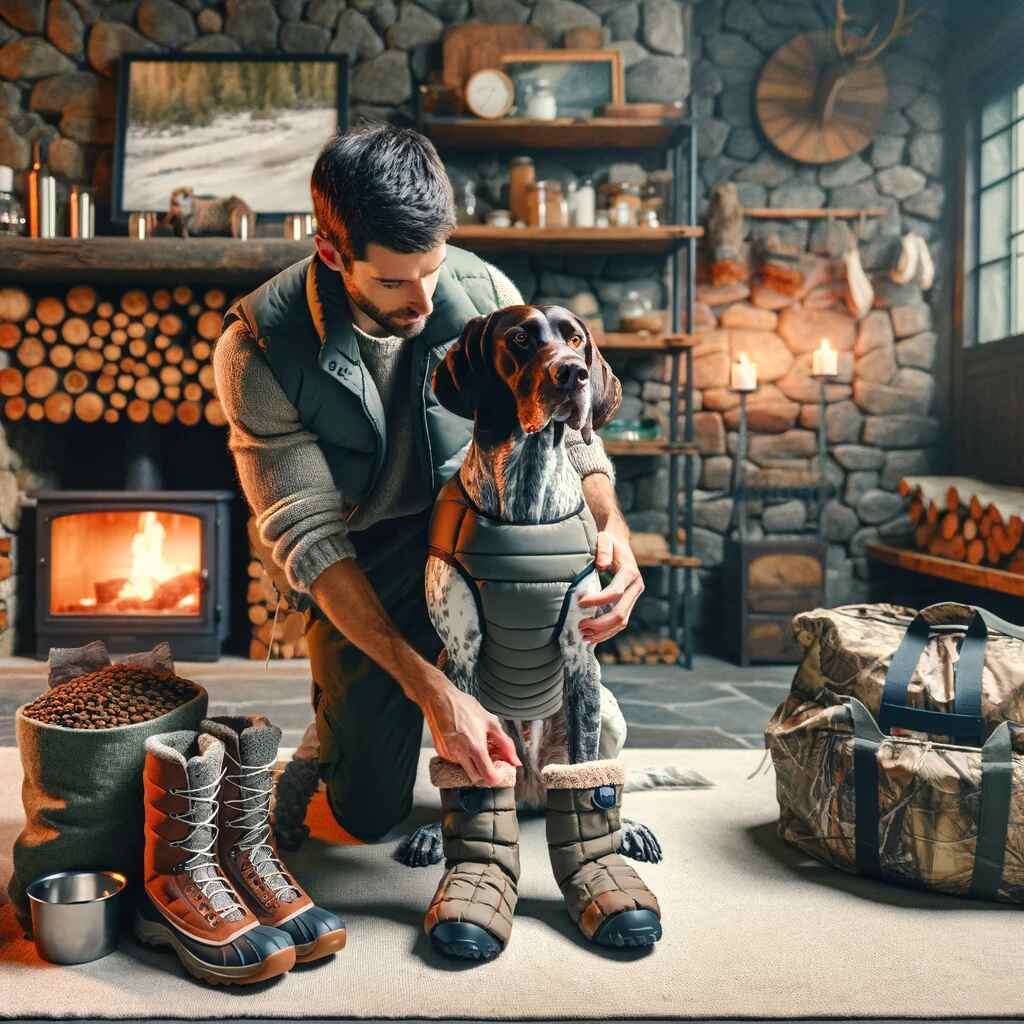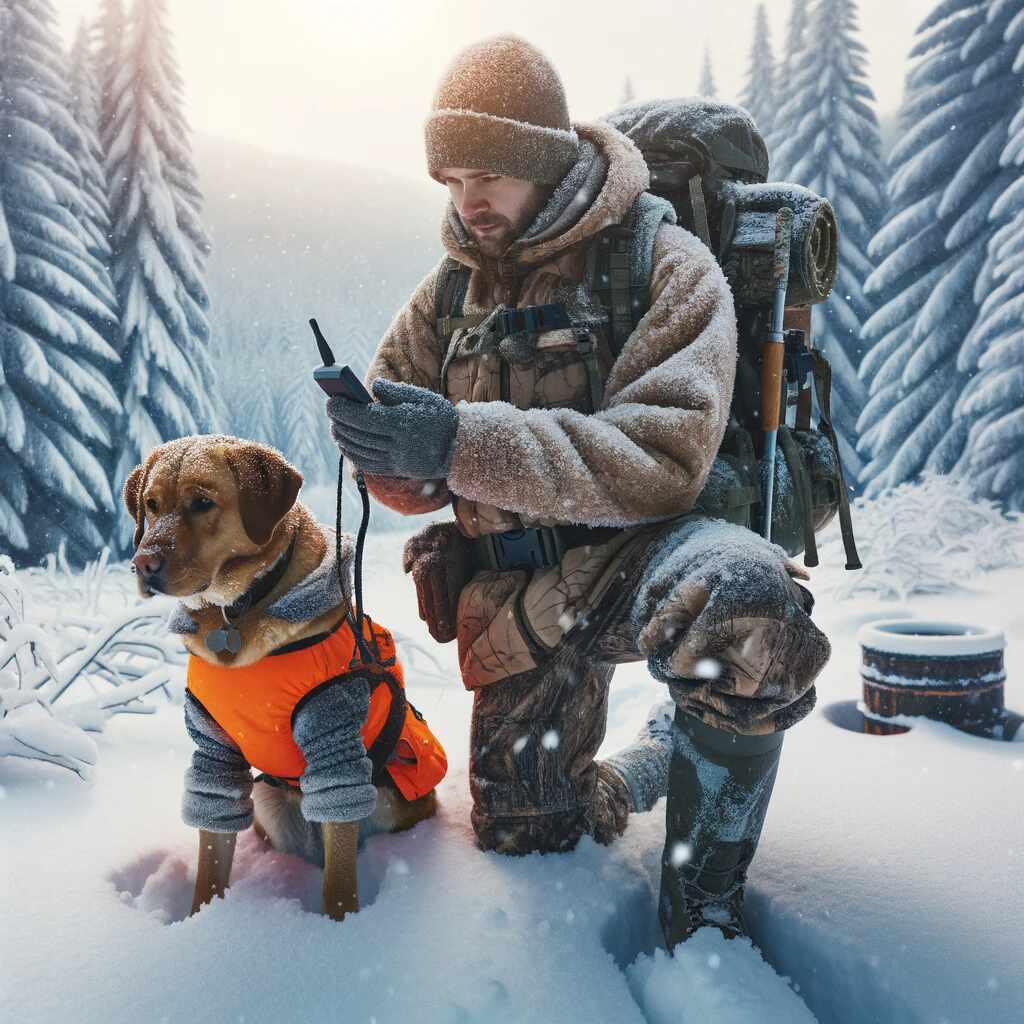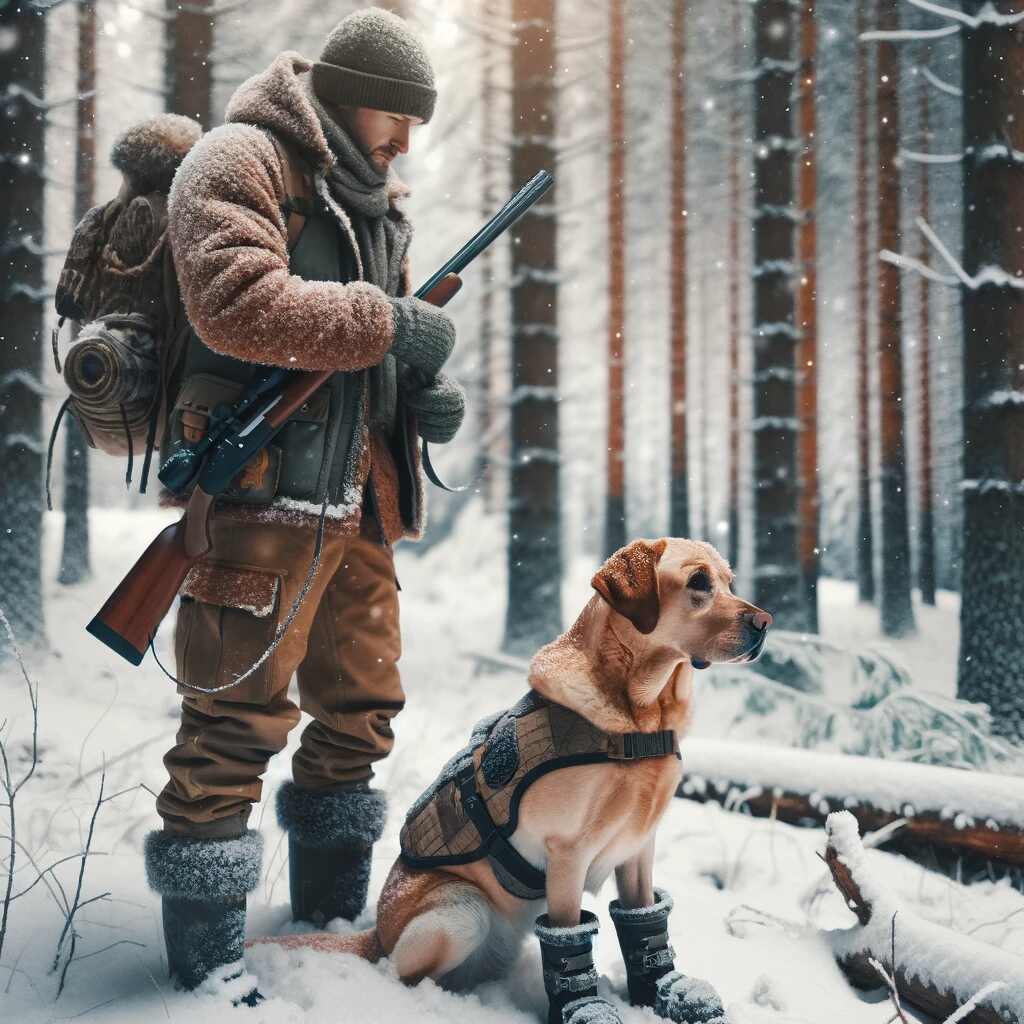Hunting with your loyal canine companion is a time-honored tradition that many outdoor enthusiasts cherish. Whether you’re chasing waterfowl, tracking game, or participating in any other type of hunting, having a well-trained and healthy hunting dog is essential. However, when the temperatures drop and winter sets in, it’s crucial to take extra precautions to ensure your dog remains safe, comfortable, and effective in cold weather conditions. In this comprehensive guide, we will discuss various strategies and tips to help you keep your hunting dog safe and effective during the colder months.
Understanding the Challenges of Cold Weather Hunting
Before we delve into the strategies for keeping your hunting dog safe and effective in cold weather, it’s important to recognize the unique challenges posed by winter hunting. Cold weather can affect your dog in various ways, and being aware of these challenges is the first step toward addressing them effectively.
1. Hypothermia
Hypothermia is a dangerous condition that occurs when a dog’s body temperature drops significantly below its normal range. In cold weather, dogs are at risk of hypothermia if they become wet, especially if they are not adequately protected with proper gear. Symptoms of hypothermia in dogs include shivering, lethargy, weakness, and a drop in body temperature.
2. Frostbite
Frostbite is another cold-weather concern for hunting dogs. It occurs when a dog’s skin and underlying tissues freeze due to prolonged exposure to extremely cold temperatures. Common areas susceptible to frostbite include the ears, paws, and tail. Signs of frostbite include pale or discolored skin, pain, and tissue damage.
3. Reduced Scenting Abilities
Cold weather can affect a dog’s scenting abilities, making it more challenging for them to locate game. Scent molecules disperse less effectively in cold air, making it harder for your dog to pick up and track scents. This reduced ability can impact your hunting success.
4. Decreased Stamina
Cold weather can also reduce your dog’s stamina and endurance. The cold can be physically taxing, and your dog may tire more quickly than usual. This can hinder their ability to perform optimally during long hunting trips.

Preparing Your Hunting Dog for Cold Weather
Now that we’ve identified the challenges of hunting in cold weather, let’s explore the steps you can take to prepare your hunting dog for these conditions.
1. Selecting the Right Breed
The breed of your hunting dog plays a significant role in how well they handle cold weather. Some breeds are naturally more equipped to handle low temperatures than others. Breeds like Labrador Retrievers, German Shorthaired Pointers, and English Setters tend to have thicker coats and are better suited for cold weather hunting. However, it’s essential to consider your dog’s specific needs and preferences when selecting a breed.
2. Cold-Weather Training
Proper training is crucial for your hunting dog’s effectiveness in cold weather. Training should include obedience commands, retrieval skills, and specific hunting commands. Additionally, consider incorporating training exercises in cold weather conditions to help your dog acclimate to the colder environment. This can help them perform better when hunting season arrives.
3. Maintain a Healthy Diet
A well-balanced diet is essential for your hunting dog year-round, but it becomes especially important during the colder months. Feeding your dog high-quality food that provides the necessary nutrients and energy will help them stay healthy and maintain their stamina in cold weather.
4. Conditioning and Exercise
Regular exercise and conditioning are vital for your dog’s overall health and cold-weather readiness. Exercise helps maintain muscle tone, joint flexibility, and cardiovascular health. However, it’s important to adjust your dog’s exercise routine in colder weather to prevent overexertion and hypothermia. Shorter, more frequent exercise sessions are often better than long, strenuous ones.
5. Proper Gear
Investing in the right gear for your hunting dog is essential for keeping them safe and effective in cold weather. Here are some items to consider:
- Insulated Dog Vest: An insulated dog vest provides additional warmth and protection for your dog. Look for a vest that is both insulated and waterproof to keep them dry.
- Dog Boots: Dog boots protect your dog’s paws from cold ground, ice, and sharp objects. They also help prevent frostbite and keep paws dry.
- Dog Sweaters or Jackets: For dogs with shorter fur or less body fat, consider using dog sweaters or jackets to provide extra insulation.
- Neoprene Dog Vest: Neoprene vests are ideal for waterfowl hunting, as they provide buoyancy and insulation in cold water.
- Blaze Orange Gear: Ensure your dog is visible to other hunters by outfitting them in blaze orange gear. This helps prevent accidents during hunts.
6. Regular Health Checkups
Before the hunting season begins, schedule a visit to the veterinarian for a thorough health checkup. Make sure your dog is up to date on vaccinations, flea and tick prevention, and any necessary medications. Discuss your plans for hunting in cold weather with your vet to address any specific health concerns.
7. Mental Stimulation
In addition to physical preparation, it’s essential to keep your dog mentally stimulated. Interactive toys and puzzles can help keep their mind sharp during the off-season, ensuring they remain focused and alert during hunting trips.

Tips for Hunting Safely and Effectively in Cold Weather
Once your hunting dog is adequately prepared for cold weather, it’s time to take to the field. Here are some tips to help you hunt safely and effectively in colder conditions:
1. Monitor Weather Conditions
Stay informed about the weather conditions before heading out for a hunt. Pay attention to wind chill, precipitation, and temperature forecasts. It’s important to know what you and your dog will be facing to plan accordingly.
2. Dress in Layers
Wearing layers is just as important for you as it is for your dog. Dressing in layers allows you to regulate your body temperature more effectively. Start with moisture-wicking base layers, add insulating layers for warmth, and finish with a waterproof and windproof outer layer.
3. Keep Your Dog Dry
Wet fur can lead to hypothermia and discomfort for your dog. Ensure your dog’s gear is waterproof, and use towels or a dog-friendly hairdryer to dry them off when they get wet during the hunt.
4. Provide Shelter
If you’re hunting in extremely cold conditions or a prolonged snowstorm, consider bringing a portable dog shelter. This provides your dog with a warm and safe place to rest between hunts.
5. Limit Hunting Time
In extremely cold weather, it’s important to limit your hunting sessions to prevent your dog from becoming too cold or fatigued. Shorter, more frequent hunts with breaks in between are a better approach than extended outings.
6. Watch for Signs of Cold Stress
Keep a close eye on your hunting dog for any signs of cold stress, such as shivering, lethargy, or disorientation. If you notice these symptoms, it’s crucial to take immediate action to warm them up and protect them from further cold exposure.
7. Stay Hydrated
It’s easy to overlook hydration in cold weather, but it’s just as important as in warm conditions. Ensure your dog has access to fresh water during breaks, as hunting can be physically demanding and lead to dehydration.
8. Use GPS Tracking
In cold weather, snow and freezing conditions can make tracking your dog more challenging. Consider using a GPS tracking device to keep tabs on your dog’s location, especially in dense woods or large hunting areas.
9. Keep Emergency Supplies Handy
Always carry a first-aid kit for your dog, which should include items like antiseptic wipes, bandages, and tweezers for removing thorns or splinters. Additionally, bring extra gear like dog boots and blankets in case of emergencies.
10. Post-Hunt Care
After a successful hunt in cold weather, it’s essential to provide your dog with proper post-hunt care. Dry them off, check for injuries or irritations, and ensure they are warm and comfortable before leaving the hunting site.
Conclusion
Hunting with your dog in cold weather can be a rewarding experience, but it requires careful preparation and consideration for your canine companion’s well-being. By understanding the challenges of cold weather hunting, adequately preparing your dog, and following safety guidelines, you can keep your hunting dog safe, healthy, and effective during the winter hunting season. Remember that your dog’s safety and comfort should always be a top priority, ensuring a successful and enjoyable hunting experience for both of you.










